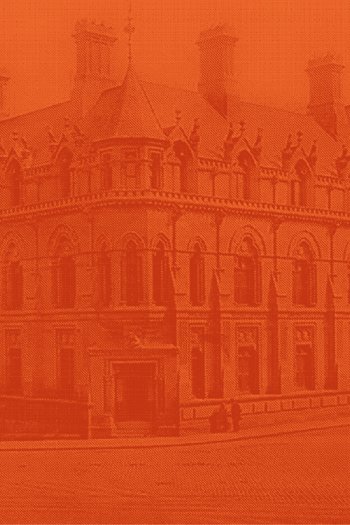Myself and my fellow Youth Board members have been hands-on in supporting The Common Room with embedding the United Nations Sustainable Development Goals in its programme of delivery.
Set in 2015, the UN Sustainable Development Goals are a collection of global goals working to create a better and more sustainable future for all.
The mission of The Common Room is to inspire our next generation of innovators and engineers by demonstrating how collaboration and partnerships can encourage and empower invention and creativity, across our region and beyond.
There are currently 13 Youth Board members helping The Common Room achieve its long-term goals, each of us possessing a different skill set – working across a range of sectors – but all committed to championing our North East region through its industrial heritage.
The Youth Board were tasked to consider which of the Sustainable Development Goals mattered most to us and would enhance The Common Room further in achieving its mission. We collectively agreed on Goal number 17: Partnerships for the Goals – that sustainable and strong relationships with both regional and national businesses will help strengthen The Common Room brand and outlook, as a key influencer within the science, technology, engineering and maths (STEM) sector.

Working collaboratively across sectors
Goal number 17 – Partnerships for the Goals, refers to the need for cross-sector and cross-country collaboration in pursuit of all the goals by the year 2030. To build a better world, we need to be supportive, empathetic, inventive, passionate, and above all, collaborative.
The 17 Goals express our moral obligation to end extreme poverty and hunger, to ensure that all children receive an education, to protect health and well-being and the rights of vulnerable groups, and to save our planet and the species that dwell here.
The Goals demonstrate just how much sustainable development depends on us all, not just governments. Everyone has an important role to play, including civil society, the private sector, research and academia, Parliamentarians, communities and individuals across the country.
I’m very proud to live in a region of the UK that is highly collaborative. Working in both the private, charitable, and now the public sector, I’ve witnessed first-hand a range of cross-sector businesses all aiming to create a better North East for its citizens.
Some recent examples include; the announcement of the new Freeport in Teesside, which will create thousands of well-paid and skilled jobs for the region – restoring Teesside back to its heritage of advanced manufacturing and engineering; and our local universities, seen as the “engines of the economy”, working closely with businesses, the public sector, charities and research organisations to tackle the challenges of tomorrow and create more skilled positions for our next generation of graduates.
The North East LEP is also taking a collaborative approach to boosting regional growth and talent retention through its levelling up agenda to create 100,000 more sustainable and skilled jobs for our region, with a prominent focus on STEM related roles. The organisation aims to develop a fair playing field for everyone across the region with sustainability and decarbonisation at its core.
The Common Room aims to build on the region’s vision and become the regional and national hub for innovation – inspiring more young people to progress into engineering, manufacturing, science, technology and education-related subjects, thus increasing the demand and opportunities for more STEM-related roles which are vital in boosting the North East’s economy.
The Common Room programme of events centres on exhibitions, education workshops and public engagement activities. Working with local schools and apprentices, and using materials from their archive of industrial heritage, the programme enriches current learning experiences and instils pride in North East engineering and innovation for all ages. This experiential learning also develops our next generation’s STEM skills.
Through cooperation on, and access to, science, technology and innovation – complemented by multi-stakeholder partnerships that mobilise and share knowledge, expertise, technology and financial resources – The Common Room will help to support the achievement of the Sustainable Development Goals across our region and beyond.
As board members, we will continue to support The Common Room team; bringing fresh perspectives on topics and experiences from our own careers and sectors.
I’m looking forward to the Opening Festival over the coming year, showcasing the renewed, beautiful and historic grade II* listed building for the public and business community to enjoy into the future.
Andrea Hillery, Employability Coordinator, Northumbria University

